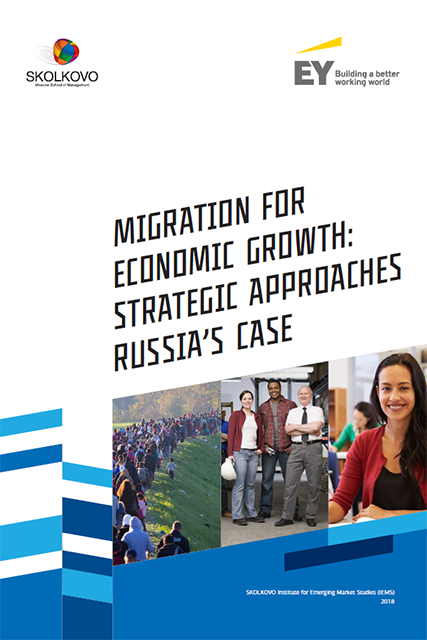
The issue of international migration has moved to the top of the political agenda in recent years. The heated media debates tend to hide the fact that the phenomenon of modern migration is complex and multifaceted; actually, there are few social issues where popular opinion and the research discourse diverge so sharply. While much of the discussion is focused on the immediate social aspects of mi¬gration, both from the perspective of migrants and that of their “hosts”, the issue of the possible long-term economic effects of international migration is elaborated to a much lesser extent. A report from Institute for Emerging Markets Studies SKOLKOVO approached the phenomenon of migration from the perspective of its effect on economic growth; introducing the frameworks for cost and benefits analysis, specific to a given country case. The report further focuses on applying the frameworks to the case of Russia, concluding that the country has an economic case for attracting significant volume of new human capital in order to move out of a period of prolonged economic stagnation. Russia also has multi-ethnic and multi-cultural history and an advantageous position in the regional “market” for human capital, yet this position starts to be strongly challenged by both regional and global competitors. At the same time, Russia currently lacks an informed strategic policy on migration, which results in a dearth of official institutes of integration; this creates a risk of missing a historic window of opportunity to boost national socio-economic development.
Download research reports: in English, in Russian.